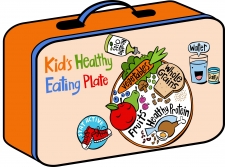When people talk about restaurant and dining trends, they typically go right for the plate - meaning they talk about new foods, new ingredients, new food sources and the like. But restaurant trends these days go far beyond the plate - off the menu and into other areas you’d likely not think of right away.
So let’s jump into some 2017 trends that we see happening around the world and see if you saw them coming.
Coming up with an idea for a limited-service or fast-casual restaurant is probably the easiest part of creating a restaurant. And despite reports that casual dining is on the decline as w hole, there are certain trends within the QSR industry that are giving many hope that their restaurant idea will succeed.
Regardless of the format of your restaurant (food truck, limited service, etc) there’s one thing that you will absolutely need before you get started: Insurance.
If your QSR brand isn’t making use of user-generated content, then what content are you using? These days, QSR customer are so savvy that they see right through anything that even smells like a marketing ploy, so it’s no wonder that smart restaurant brands are scooping up and making use of some of the best material that their fans are posting.
User-generated content has been around for quite some time. Brands and other people would look for it, share it and use it mainly as a social media tool. But when used on its own, this content can be leveraged as a very authentic and powerful marketing tool.
With many of us trying to do the right thing, choosing healthier food, when we eat it’s no wonder so many restaurants are making a shift to healthier menu ingredients.
Recently, Papa John’s (the global pizza brand) made good on its promise to eliminate a number of chemicals and ingredients from its menu items and ingredients list. The list of ingredients that the brand removed includes:
- Synthetic Beta Carotene
- Caramel Color
One of the most-common cooking elements in a QSR kitchen is easily cooking oil Used for frying, grilling, dressings and a few dozen other functions, oil is liquid gold for chefs.
Cooking oils makes food cook fast, taste good and even look good too. But working against the use of conventional cooking is the demands of consumers who want healthier options. It was just a few short years ago that the world started to make the shift away from partially-hydrogenated oils. Sure they could be stored for a long time. Their shelf life was great for the QSR industry, but the oil was a big source of trans fat which, according to dieticians and researchers, can lead to heart disease.













